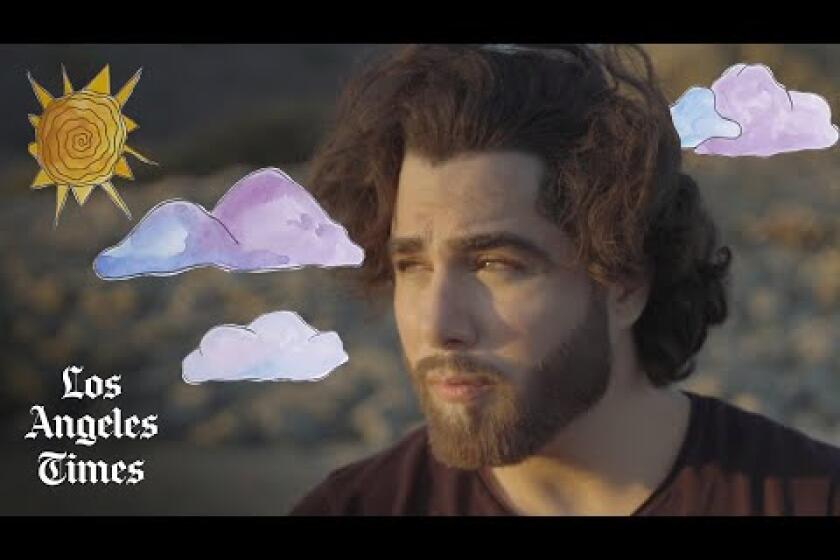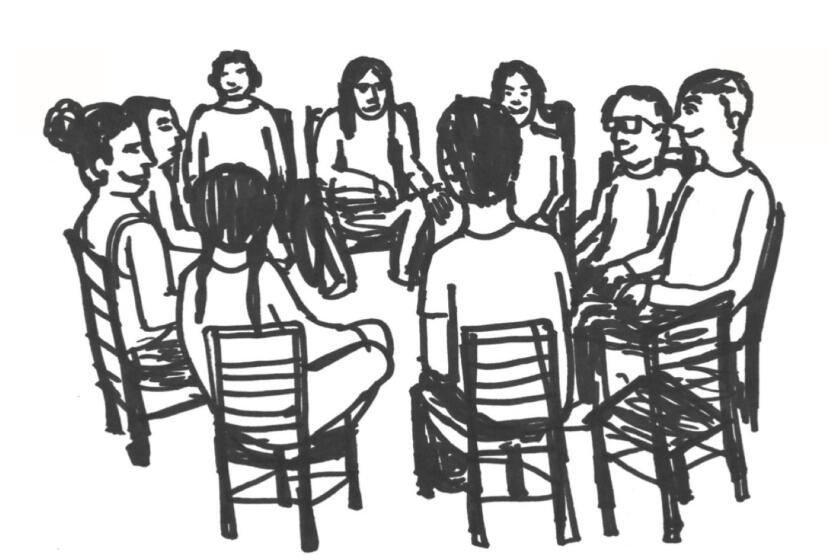Painted Brain founders embrace the hidden superpowers behind their mental illnesses

Painted Brain co-founders Dave Leon, Rayshell Chambers and David “Eli” Israelian use their experiences with mental illness to help guide others toward recovery.
- Share via
David “Eli” Israelian felt like the walls were closing in on him in his co-working space in L.A.’s Arts District in 2009. Israelian is a software developer who lives with mental illness: schizophrenia, obsessive-compulsive disorder and borderline personality disorder. And he does have hallucinations.
But as the weeks went by, he said his space really was getting smaller. He saw Dave Leon — then a stranger who shared the area with him in the warehouse — moving the cubicle walls, and they started to talk.
Leon, a licensed clinical social worker, doesn’t remember the details, but he had recently started a project called Painted Brain to create a community for people with mental health challenges. They were having a lot of gatherings, he explained, and they had a lot of stuff — a piano, a drum set, tables and lots of art supplies. They were outgrowing their space.
Once Israelian learned about Painted Brain’s mission, he offered to build them a better website. At the time, Leon didn’t know Israelian was struggling himself, going in and out of hospitals. Israelian coded his first version of the website on paper during one of his stints in a mental health facility.
When Israelian told Leon about his diagnoses, Leon was excited.
“I was like, ‘You’re part of our team,’” Leon said. “‘This is awesome.’”
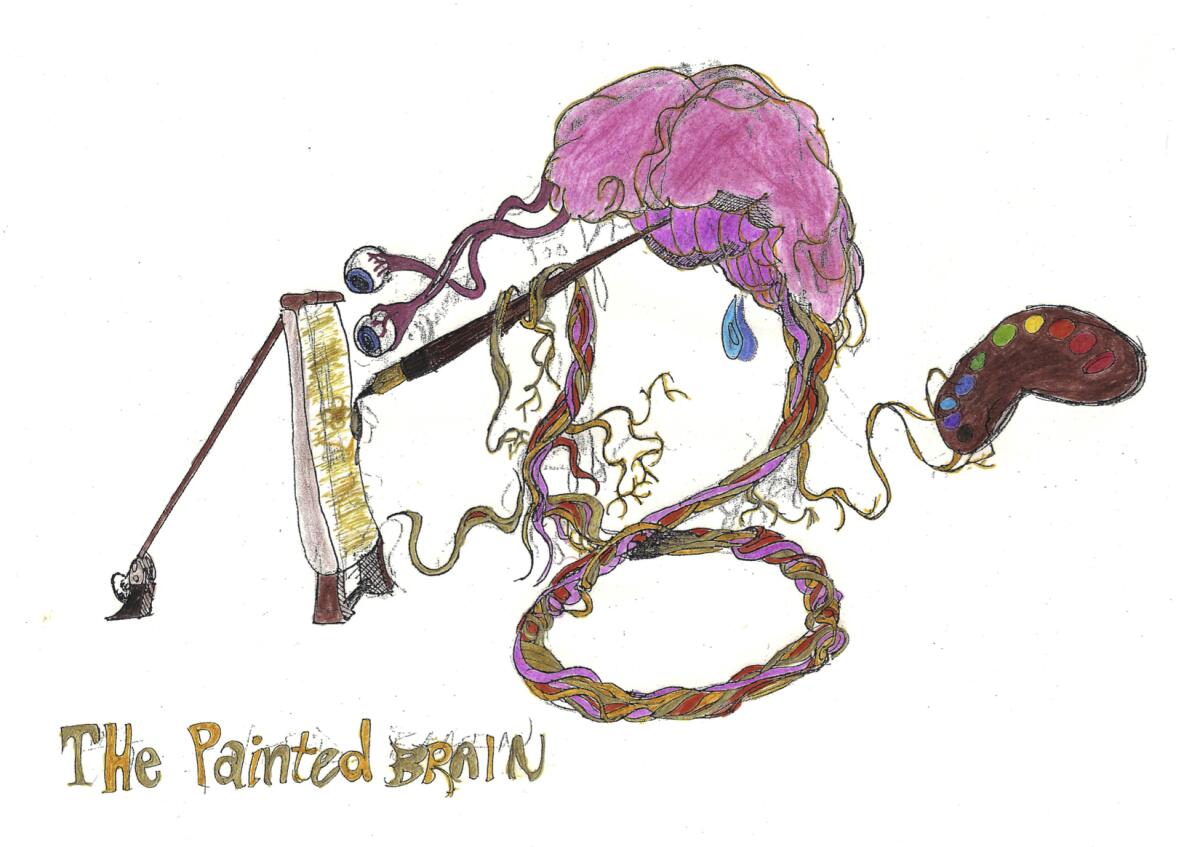
“I’m like, ‘Watch your mouth,’” Israelian joked, before turning serious. “‘I live with this. It hasn’t been such a gift, you know?’ And he said, ‘I understand.’”
Leon also identifies as a peer, someone who has experience with mental illness. He’s lived with depression since he was about 10.
“But we both built up to this ... idea that [our challenges] could turn into a gift … to create this power, this superpower,” said Israelian, “and hone in on that and make it an asset for the company.”
Painted Brain is an L.A.-based peer-run mental health nonprofit co-founded by Leon, Israelian and Rayshell Chambers. It’s important for them as leaders to be transparent about their own experiences and share their stories.
“The way that the mental health system has operated for so many years, it’s a very top-down system,” said Leon. “It’s about labeling and identifying symptoms and trying to treat symptoms. It’s potentially a little bit dehumanizing at the best ranges. And then within the public system, the services are hard to get, hard to maintain, hard to access, and of varying qualities.”
Their peer-run model is meant to topple the traditional hierarchies of mental healthcare. The executives and community members are on level ground. They all know what it’s like to struggle with their mental health. They understand what’s at stake and what’s necessary to keep each other from spiraling downward.
“Mental illness is just, for some people, a part of their life,” Leon said. “And it’s about learning to work through it, accommodate it, live around it, live through it, live with it. But I think that the way it’s talked about is often trying to, like, get rid of it or push it aside, as opposed to make it a part of your life and find some purpose or meaning in it.”
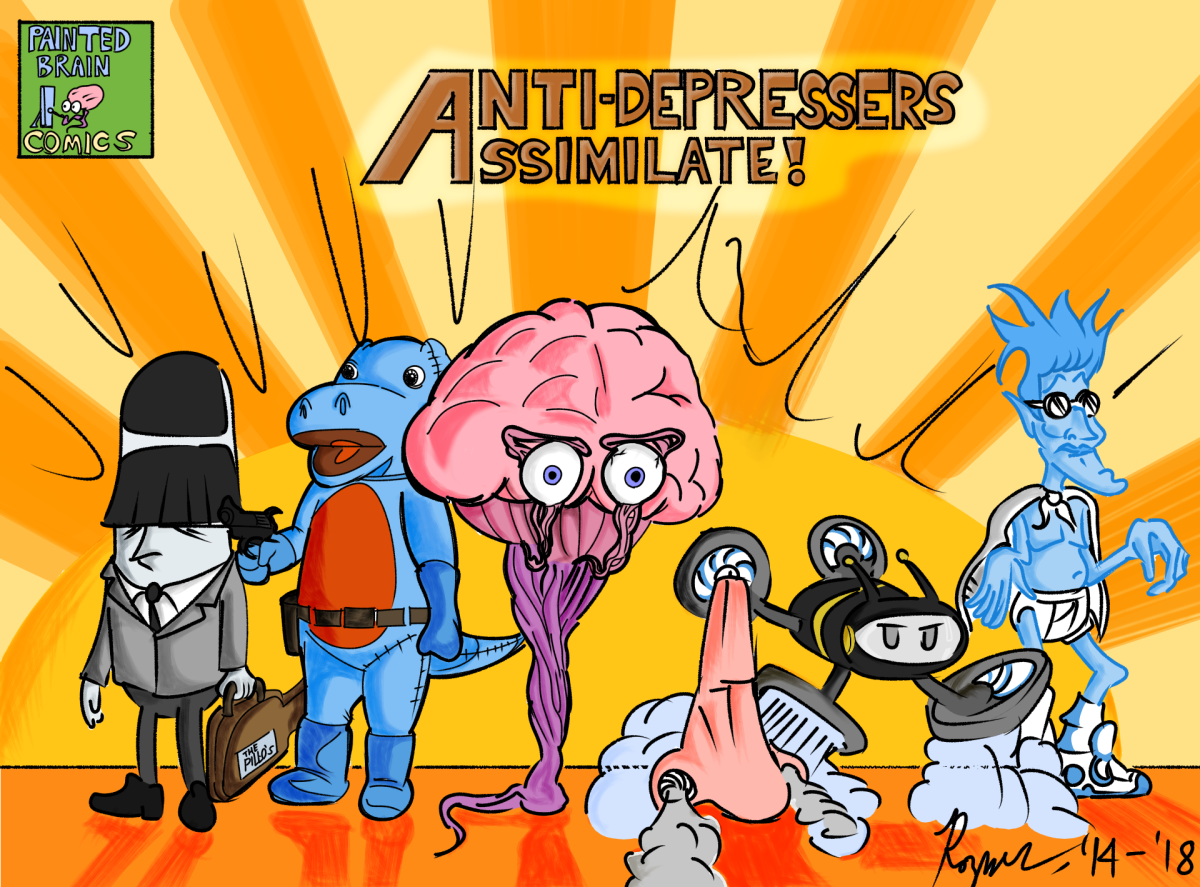
How it began
Leon started Painted Brain because he was looking for a place to bring together the young adults with serious mental illness he was meeting individually as a therapist.
“That’s kind of where my heart is,” he said. “Just trying to find a way to help people that don’t fit in find each other, and maybe fit in better.”
He quickly found that it was hard for them to open up and talk. They felt more comfortable sitting together and drawing.
“I was working with a group ... from all different backgrounds, like the full gamut of Los Angeles, really, and I thought these people were the coolest people I’ve ever met,” said Leon. “Some of them barely spoke. Some talked really intensely. Some were just incredible artists ... and I just thought, ‘If people could see this, we would have a different attitude towards mental illness.”
After about a year, he started compiling their artwork into a magazine. The index of their inaugural Painted Brain issue matched the basic concepts of cognitive behavioral therapy: thoughts, feelings and actions. Each issue included a beginner’s guide to mental illness, a featured artist, a featured mental health worker or parent, a poetry section, cartoon section, a fashion shoot — and lots of art. It printed from 2006 to 2012 and continues online.
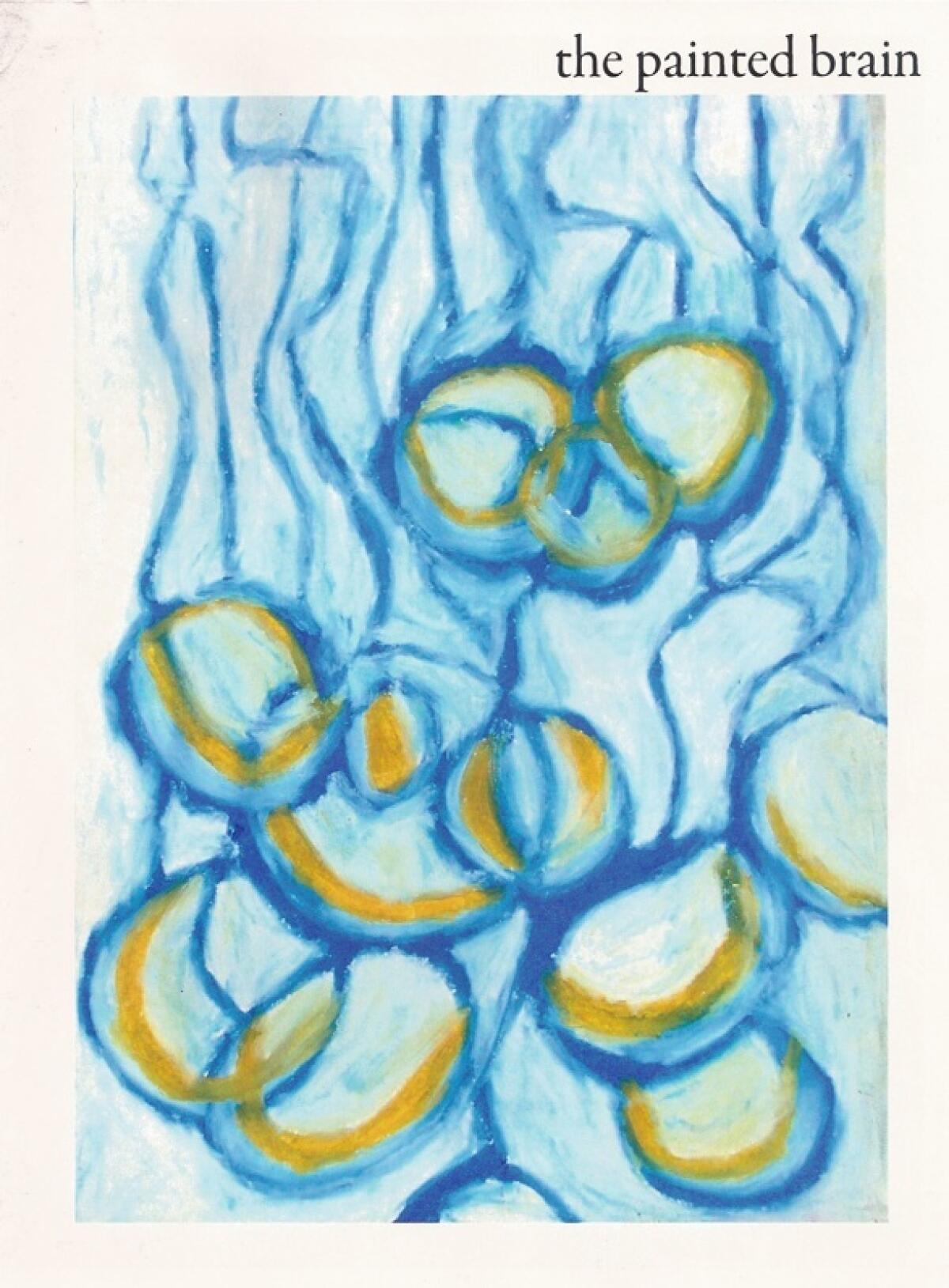
As Painted Brain grew, Leon and Israelian started developing programs to address issues they noticed their community members having.
“We were getting contracts, slowly built up, slowly built up,” said Israelian. “And we got Rayshell on board, and Rayshell came in like fire.”
Before Chambers joined Painted Brain, she was a technical writer for a nonprofit focused on community-based care for ethnic communities. She had helped Leon with some grant writing, but it wasn’t until after her sister died of an overdose that they crossed paths again.
She told him she was struggling mentally. It made her feel helpless that she had been writing substance abuse programs for her work, but she couldn’t save her own sister.
“I was like, I have to do more; we have to do more,” she said. “And I wanted to use my skills to at least normalize mental health, particularly for communities of color.”
Chambers helped them incorporate into a company in 2016 and became their chief operating officer. Now they have more than 40 employees, and they not only run art groups but provide occupational therapy, crisis support, peer support, digital literacy training, homeless services, advocacy and more.
The founders of the Painted Brain, a peer-support nonprofit, use their experience with managing their own mental illness to help others.
Finding purpose
They also provide jobs to those with a history of mental health challenges, taking peers off disability and transitioning them toward full-time careers.
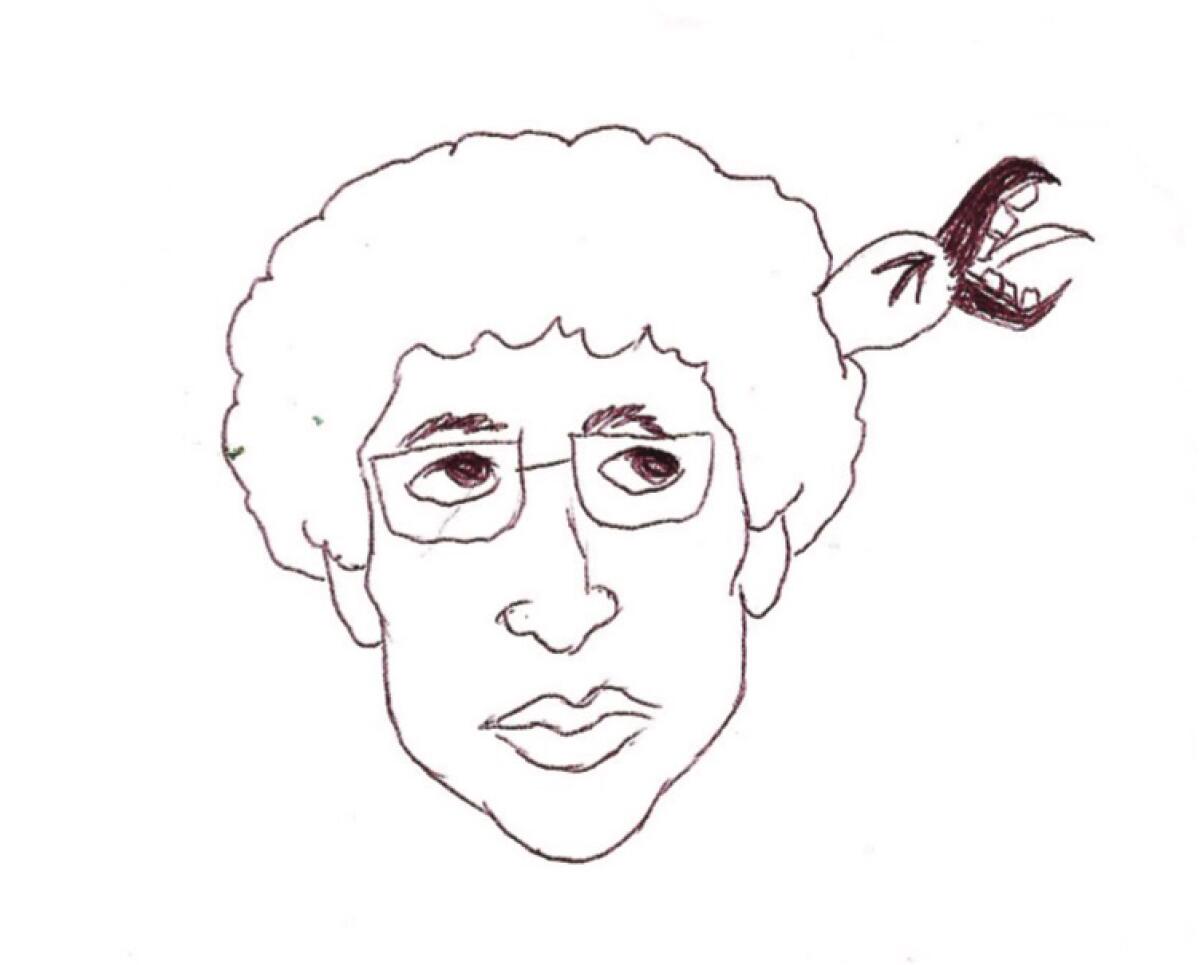
“What we do here is we get you to find your purpose, your people and then be productive,” said Israelian. “Because if you aren’t doing those three things, you’re going to spiral downward.”
He said that when Painted Brain hires people, they don’t list a job posting and recruit for it. They try to figure out each individual’s superpower.
“I train individuals who are living with mental health challenges to code, and they pick up on coding faster than most. … So it says a lot about the way that their brains are processing information and how they find these patterns, to retain whatever they’re learning and also apply that to something that’s practical,” said Israelian.
Leon said there’s a hidden strength to every mental illness. He points out that mania would be considered superpower in warrior cultures, being able to fight for days without tiring. People with autism have increased sensory awareness. Some cultures might see schizophrenia as having access to other realms — and someone having a psychotic break as transitioning to become a spiritual leader for the community.
“When you think about what we call ‘symptoms’ and what some other cultures or societies might call ‘experiences,’ the meaning that’s associated with the experience has a huge impact on how you see it, how you make sense of it, what you do with your life around it,” he said.
Mental health resources for peers
L.A.-based peer organizations:
Painted Brain
Project Return Peer Support Network
California Association of Mental Health Peer-Run Organizations
Patients’ rights information:
Law Foundation of Silicon Valley
Disability Rights California
Psychiatric Advance Directives (PAD):
PAD FAQ from Painted Brain and USC
Disability Rights California PAD template
Free legal help:
Mental Health Advocacy Servies (MHAS)
Bet Tzedek
Family resources:
National Alliance on Mental Illness (NAMI)
For the record:
10:32 a.m. Oct. 6, 2021This story incorrectly states that Rayshell Chambers has bipolar disorder. She lives with post-traumatic stress disorder.
Chambers said that watching Leon and Israelian be so open about their mental illness gave her the courage to go public with her bipolar disorder and her history with hospitalization.
“It’s kind of scary to be so authentic and transparent,” she said.
But once she realized how much change she could make just by being honest and telling her story, she said she couldn’t be afraid anymore.
Israelian also used to run away from his diagnoses. Now, he embraces them.
“I just think that it’s very empowering for me to say I’m a schizophrenic, OCD and BPD individual,” he said. “Because I don’t give power to those labels. You’re going to remember me, my personality, my contributions, the creation of Painted Brain and all this other stuff I’ve done.”
He understands that some people will still prejudge him, but he said the ones who accept him for his vulnerabilities are the type of people he’d rather be surrounded by anyway. The type of people who contribute to an organization like Painted Brain.
“Who better to create any sort of program or a business model that basically is catering to the experience of a peer, right?” he said. “Who better than the person who has lived it?”
Through peer support, people with experience managing recovery from a mental health challenge help someone in the recovery process. Here’s how to get it if you need it, and how one can become a peer support specialist.
More to Read
Sign up for The Wild
We’ll help you find the best places to hike, bike and run, as well as the perfect silent spots for meditation and yoga.
You may occasionally receive promotional content from the Los Angeles Times.
